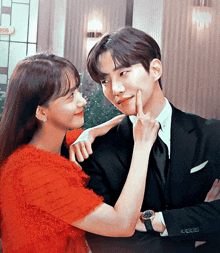The Allure of the Escapist Ideal
We all crave a break from the everyday grind, a chance to immerse ourselves in a world that seems more glamorous and exciting. Celebrities represent a world of seemingly endless wealth, beauty, and success, so following their meticulously tailored lives offers a temporary escape from the mundanity of our own.
Our captivation with celebrities is nothing new. Society has always looked up to influential figures who transcended the ordinary and offered glimpses into a different, more luxurious kind of life. Take Queen Victoria’s iconic white dress from 1840 that still inspires brides today as an example. Her extravagant ceremony and public persona served as a source of fascination for the masses.
Now, instead of fawning over royal weddings, we look to Hollywood stars and beauty moguls to hold that special place in our social fabric. As humans, we have a fundamental need to feel connected to something larger than ourselves.
Dr. Nathan A. Heflick, a psychologist writing for Psychology Today, put it in a more existential perspective, “We love celebrities because they are an integral part of culture. They have made it in the worldview we are so entrenched in. By worshipping them (to an extent), we feel as if we are participating in this hugely important cause/belief system.”
Social media feeds curated with perfectly-lit photos fascinate us, and sometimes foster a sense of parasocial connection – we feel like we “know” them, even though we don’t. Developing one-sided relationships with celebrities or characters we see in the media is common, and these parasocial relationships fill a social void and allow us to admire and connect with people we choose. Plus, unlike real-life relationships, they come without the risk of rejection.
At times, this escapism and obsession over celebrities is simply a harmless distraction, but it can also become a vice, diverting attention from real-world problems.
Let us slide into your dms 🥰
Get notified of top trending articles like this one every week! (we won't spam you)Celebrities in Society
Just to be clear, “drama” surrounding celebrities isn’t always frivolous. Celebrities, for better or worse, are cultural icons. Their actions and opinions can spark meaningful discourse, especially when intersecting with larger societal issues. For instance, celebrated actor Leonardo DiCaprio is a vocal advocate for environmental protection and established the Leonardo DiCaprio Foundation in 1988 which supports over 35 conservation projects worldwide protecting fragile ecosystems and endangered species.
Additionally, Colin Kaepernick, a former NFL quarterback, became a social justice activist in 2016 when he kneeled during the national anthem to protest police brutality and racial injustice in the United States. His peaceful protest ignited a heap of controversy, dividing public opinion and reopening nationwide conversations about racial inequality and patriotism.
However, the immense cultural influence celebrities hold can also be misused. Unfounded rumors and conspiracy theories about celebrities can spread like wildfire online, often fueled by snippets of interviews taken out of context or even fabricated stories.
Illustrating this dilemma: the Taylor Swift MAGA controversy. Certain supporters of former president Donald Trump have developed a belief that Taylor Swift is involved in a clandestine government scheme aimed at unlawfully boosting Joe Biden’s reelection campaign, leading them to attempt to discredit her.
The conjecture gained traction with right-wing media circles before the 2024 Super Bowl, suggesting that Taylor Swift’s relationship with Travis Kelce was orchestrated by the government. Advocates of this idea contented that a victory for the Cheifs would afford Swift a broader platform to advance Biden’s agenda.
Take the Quiz: Which Indian city is the perfect holiday spot for you!?
Let's match you with an Indian city that you would love!
The Problem with Selective Focus
In our age of information overload, celebrity gossip reigns supreme. Countless hours are devoured discussing the latest feud or fabricated rumor. But is this obsession harmless, or does it come at a cost?
Well, the trouble lies in the imbalance created by the 24-hour news cycle. With the constant pressure to fill airtime and online feeds, celebrity gossip becomes a go-to source for easy engagement. These sensational stories are quick to produce clicks and views, which reinforces the idea that such content is what audiences crave. This, in turn, makes media outlets prioritize celebrity gossip even further.
The consequence? Truly pressing issues, from policy changes impacting our daily lives to groundbreaking scientific discoveries, get relegated to the sidelines.
We become inundated with details of a celebrity’s latest conundrum, whether it’s a supposed fashion faux pas or a manufactured social media fallout. Meanwhile, things that affect our healthcare, education, environment, and more receive scant attention. This constant barrage of celebrity trivia not only distracts us from important matters but can also distort our perception of reality.
Billie Eilish’s viral lyric in her song “TV” captures this phenomenon: The internet’s gone wild watching movie stars on trial/While they’re overturning Roe v. Wade.” For context, the song references the highly publicized Depp v. Heard defamation trial that dominated headlines during the same period as the landmark Supreme Court decision overturning Roe v.
Wade. Eilish’s point is clear – we’re enthralled by the drama of celebrity lawsuits while a fundamental right is being eroded.
Finding the Balance
So, is celebrity drama inherently bad? Research indicates otherwise. Dr. Karen Dillman, a communication scholar at Michigan State University, uncovered that discussions about celebrities can encourage a sense of community and belonging, and can even (as discussed before) source important conversations. Furthermore, Matthew D Atkinson and Darin DeWitt from Sage Journals examined how celebrities influence U.S. politics, and attract public attention to critical issues.
The key to navigating the complicated celebrity-infiltrated media world lies in mindful consumption; it’s imperative that we act as detectives of the information we encounter. We should not allow celebrity headlines to overshadow significant social issues.
Celebrity news can be a launching pad for deeper discussions. Did that celebrity’s insensitive remark start a conversation about social justice? Did their philanthropic efforts inspire you to get involved with a cause? The ideal scenario is a media landscape that strikes a balance, where celebrity news provides entertainment and promotes social good without eclipsing major events shaping our world.










